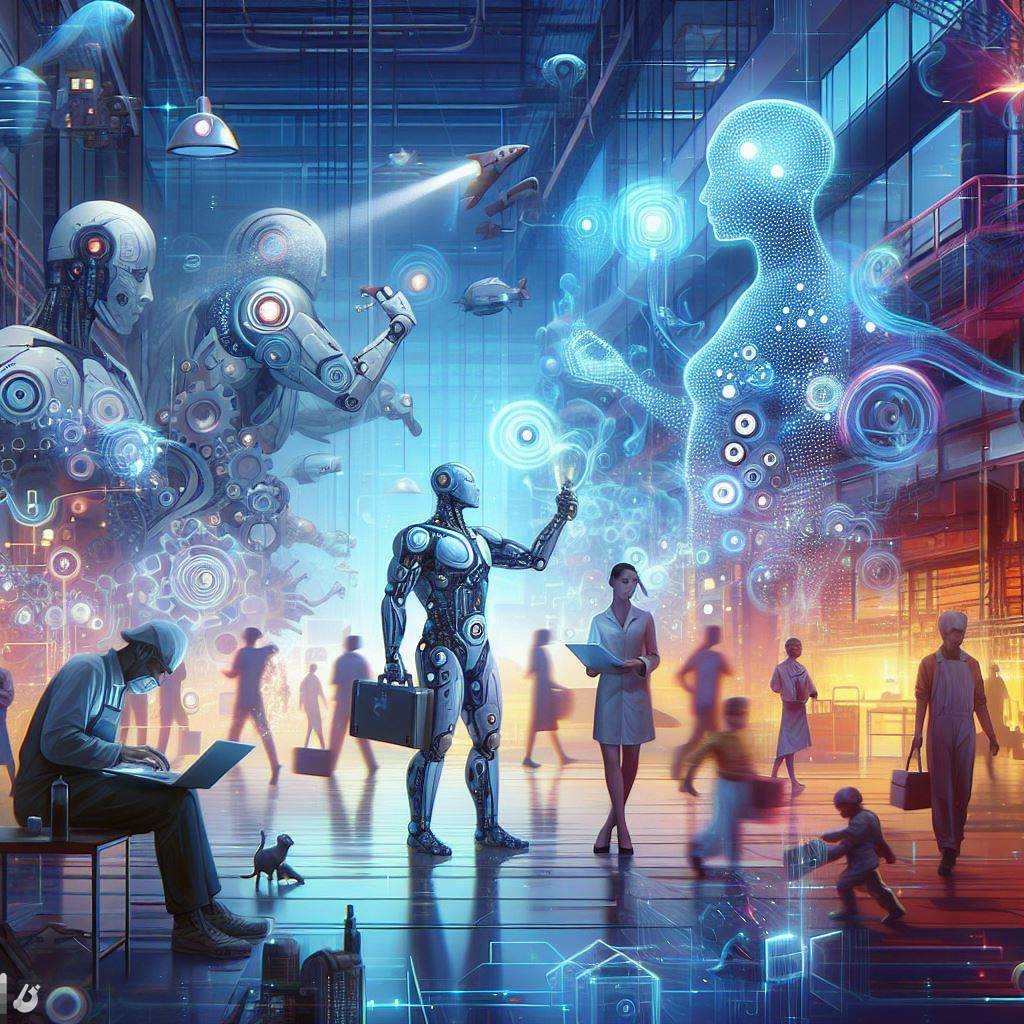
As we enter 2024, the influence of Generative Artificial Intelligence (AI) is reshaping the professional landscape in unprecedented ways. This revolutionary technology, once in its infancy, is now poised to redefine industries, job roles, and daily work routines.
The Rise of Creative Machines
Generative AI, powered by algorithms capable of producing original content, is transforming tasks traditionally associated with human creativity. In fields such as marketing, graphic design, and content creation, AI tools facilitate the rapid generation of innovative ideas and prototypes, augmenting human ingenuity without replacing it.
"AI doesn't replace human creativity but augments it, allowing for a blend of human ingenuity and algorithmic efficiency," notes industry expert [Expert Name].
Enhanced Decision-Making and Strategic Planning
Generative AI's impact extends to decision-making and strategic planning. By analyzing vast datasets, recognizing patterns, and predicting outcomes, AI systems offer invaluable insights for business strategy. Executives and managers are increasingly leveraging AI to make informed decisions, from predicting market trends to optimizing supply chains.
The Evolution of Customer Service
Generative AI is reshaping customer service with AI-driven chatbots and virtual assistants capable of understanding and responding to complex queries. This not only enhances the efficiency and availability of customer support but also allows human employees to focus on more nuanced aspects of customer relations.
Transforming Education and Training
In education and professional training, generative AI is a game-changer, personalizing learning experiences and adapting to individual learning styles. This ensures continuous learning and skill development, crucial in keeping pace with rapid technological changes.
Reinventing Research and Development
Generative AI's ability to simulate and model scenarios is revolutionizing research and development across industries. From pharmaceuticals to automotive design, AI algorithms predict outcomes, model scenarios, and generate innovative solutions, accelerating the pace of innovation.
The Emergence of New Roles and Skills
As generative AI takes on certain tasks, it creates new job roles and skill requirements. AI ethicists, data curators, and algorithm trainers are emerging professions, emphasizing the need for professionals to acquire new skills such as AI literacy and data analysis.
The Challenge of Ethical and Responsible AI Use
The rise of generative AI brings ethical considerations and potential biases. Ensuring fair, transparent, and responsible AI use becomes a task for all professionals, not just those in tech-related fields.
The Shifting Landscape of Remote and Hybrid Work
Generative AI influences the way we work, particularly in remote and hybrid environments, facilitating communication, project management, and collaboration. This leads to a more connected and efficient global workforce.
The Impact on Traditional Industries
Traditional industries like agriculture, manufacturing, and construction are not immune to generative AI's changes. From optimizing crop yields to designing smarter buildings, AI introduces new efficiencies, leading to a fusion of digital and physical work processes.
Preparing for the Future
As professionals navigate the changes brought by generative AI in 2024, staying informed, updating skills, and embracing lifelong learning are crucial. Understanding AI's capabilities and limitations ensures not just efficiency and innovation but also a more inclusive and human-centric future of work.
The transformative power of generative AI is undeniable, ushering in a new era where work is redefined by collaboration between humans and intelligent machines. By embracing these changes, professionals can ensure a future that is not only more efficient and innovative but also inclusive and human-centric.